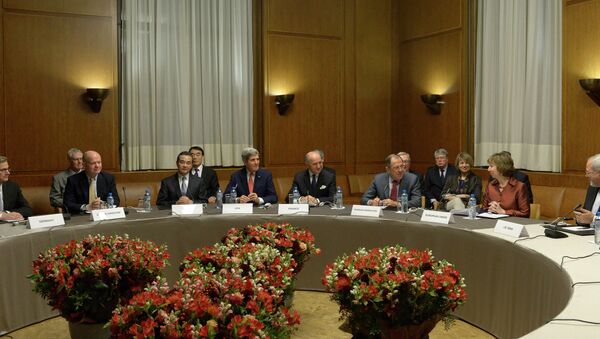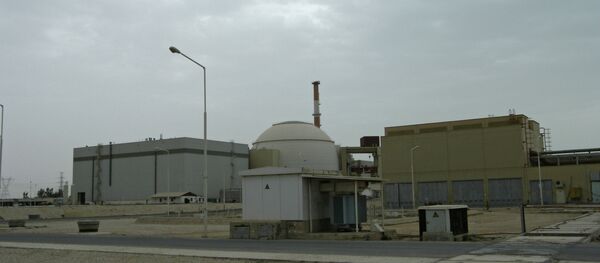MOSCOW (Sputnik) – Members of the P5+1 group, which has been holding talks with Iran on its disputed nuclear program, should not try to derive "unilateral benefit" from the complicated issue, Russian President Vladimir Putin has stressed.
"Substantial progress has been made [in the P5+1 talks with Iran]. However, we have not managed yet to produce a final comprehensive solution either regarding the Iranian nuclear programme itself or the prospects of lifting the sanctions," Putin told the Egyptian Al-Ahram newspaper.
According to Putin, Russia's position on the issue is based "on a belief that Iran has a right to peaceful nuclear activity including uranium enrichment, naturally under control of the IAEA [International Atomic Energy Agency]".
Meanwhile, the UN Security Council, the United States, the European Union, and a number of other countries have imposed sanctions on Iran, suspecting it of developing nuclear weapons under the guise of a civilian program.
Tehran has stressed that its nuclear activity is exclusively for peaceful purposes.
In November 2013, Iran and the P5+1 group of international mediators, including China, Russia, the United States, the United Kingdom, France and Germany, started negotiations on an agreement that would guarantee the peaceful nature of Tehran's nuclear program in exchange for the lifting of sanctions on Iran. The talks resulted only in an interim agreement.
At November 2014 talks in Vienna, the negotiating parties again failed to work out a comprehensive deal, instead extending the deadline for reaching an agreement to July, 2015.


